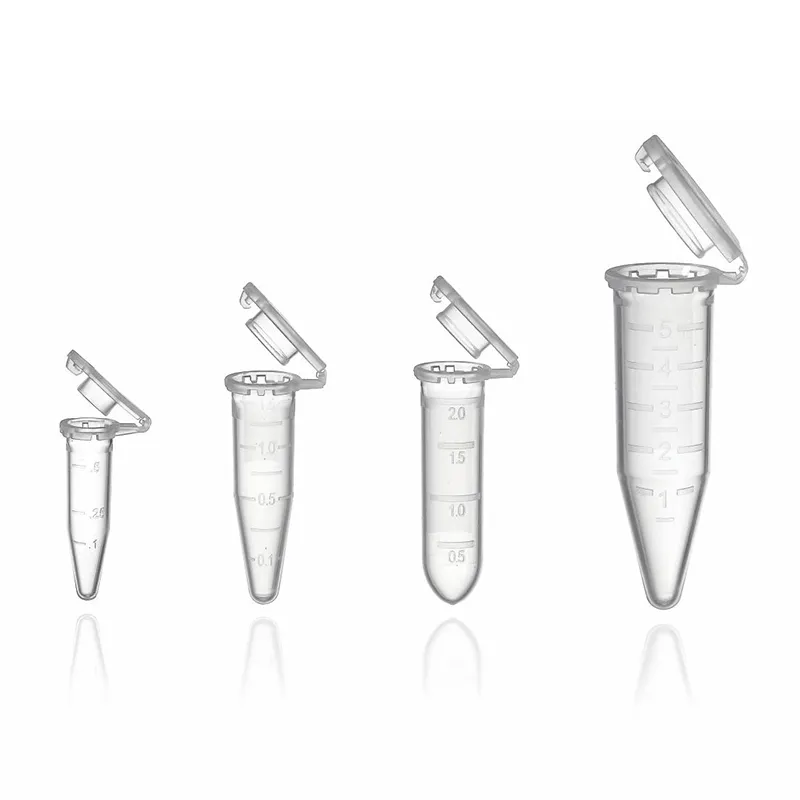https://www.wahmg.com/)">
Applications of Centrifuge Tubes in Laboratory Procedures and Experimental Research Techniques
Applications of Centrifuge Tubes in Laboratory Procedures and Experimental Research Techniques
Centrifuge tubes are indispensable tools in modern laboratories, playing a critical role in the preparation and analysis of biological, chemical, and physical samples. These small yet essential containers come in various sizes and designs, allowing scientists and researchers to efficiently separate substances of different densities through centrifugation, a process driven by centrifugal force.
At the heart of their utility lies the principle of sedimentation. When a sample is spun at high speeds, denser components are propelled outward, settling at the bottom of the tube, while lighter components remain suspended above them. This allows for the effective separation of substances, making centrifuge tubes ideal for numerous applications across various fields, including molecular biology, clinical diagnostics, and environmental studies.
In molecular biology, centrifuge tubes are extensively used for DNA and RNA extraction. The isolation of nucleic acids is vital for various applications, including cloning, sequencing, and genetic analysis. By using centrifuge tubes during the extraction process, scientists can separate nucleic acids from cellular debris and other biomolecules quickly and effectively. Additionally, centrifuge tubes are often employed during polymerase chain reaction (PCR) setups, where accurate mixing and separation of reagents are crucial for successful amplification of DNA.
In clinical laboratories, centrifuge tubes are crucial for processing blood samples. Blood is composed of several components, including red blood cells, white blood cells, platelets, and plasma. When blood samples are centrifuged, the different components separate due to their varying densities, allowing for further analysis. Plasma and serum can then be collected for biochemical tests, while red and white blood cells can be examined in hematology studies. This separation is essential for diagnosis, monitoring of diseases, and assessment of health conditions.
centrifuge tube uses in laboratory

Environmental laboratories also leverage the benefits of centrifuge tubes for analyzing soil and water samples. Centrifugation can be used to separate particulates from liquids, enabling researchers to examine sediment composition, microbial populations, and contaminants. This is vital for assessing environmental health and safety, as well as for conducting pollution studies. By utilizing centrifuge tubes, scientists can obtain clear, concentrated samples for accurate measurement and analysis.
Moreover, centrifuge tubes are designed to accommodate various conditions, including compatibility with different solvents and temperatures. Many are made from high-quality plastic or glass that can withstand the forces of centrifugation, minimizing the risk of breakage and contamination. Some tubes are disposable, which helps maintain sample integrity and simplifies cleanup procedures, particularly in high-throughput settings.
Safety and usability are also key considerations in the design of centrifuge tubes. Many tubes are equipped with color-coded lids or graduated markings to assist researchers in identifying sample types and volumes easily. This feature is particularly important in laboratories where numerous samples are processed, helping to prevent mix-ups and ensuring accurate results.
In conclusion, centrifuge tubes play a vital role in laboratory settings by facilitating the separation of components within a sample through centrifugation. Their versatility spans various fields, from molecular biology and clinical diagnostics to environmental science. As laboratories continue to advance, the importance of these small but significant tools will undoubtedly grow, reflecting their essential role in the pursuit of scientific knowledge and innovation.
-
Wholesale Plastic Juice Bottles with Caps 16 oz Options Available Bulk Packaging SolutionsNewsJun.10,2025
-
Laboratory Apparatus Reagent Bottle – Durable & Chemical Resistant Bottles for Safe StorageNewsJun.10,2025
-
Squeezable Dropper Bottles Durable, Leak-Proof & CustomizableNewsMay.30,2025
-
Affordable Plastic Petri Plates Sterile & Disposable Lab-GradeNewsMay.30,2025
-
Eye Dropper Caps Precision 24/410 & Plastic Bottle-Compatible TipsNewsMay.30,2025
-
Affordable Mini Spray Bottle Price & Wholesale Deals Shop NowNewsMay.29,2025





















